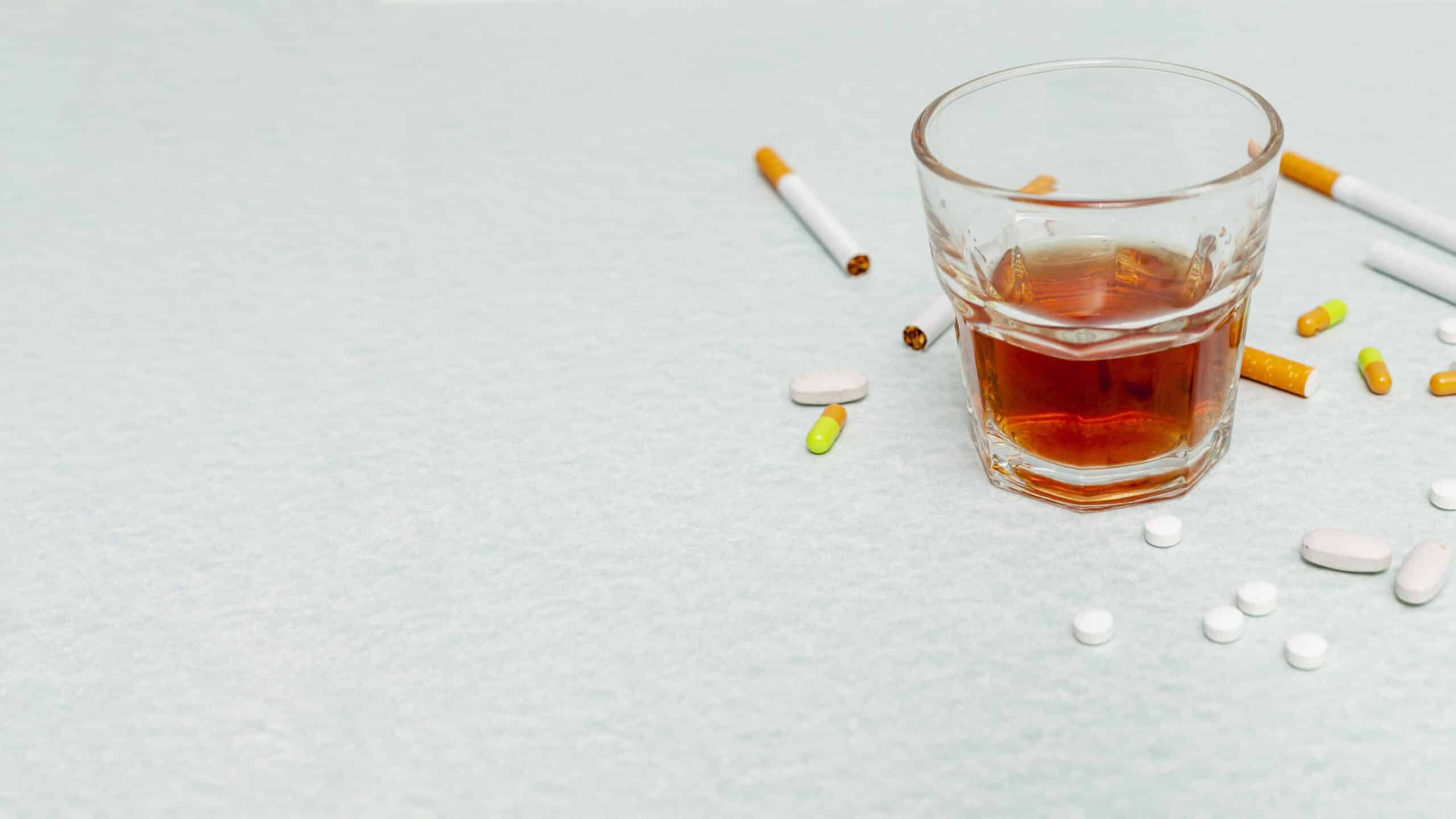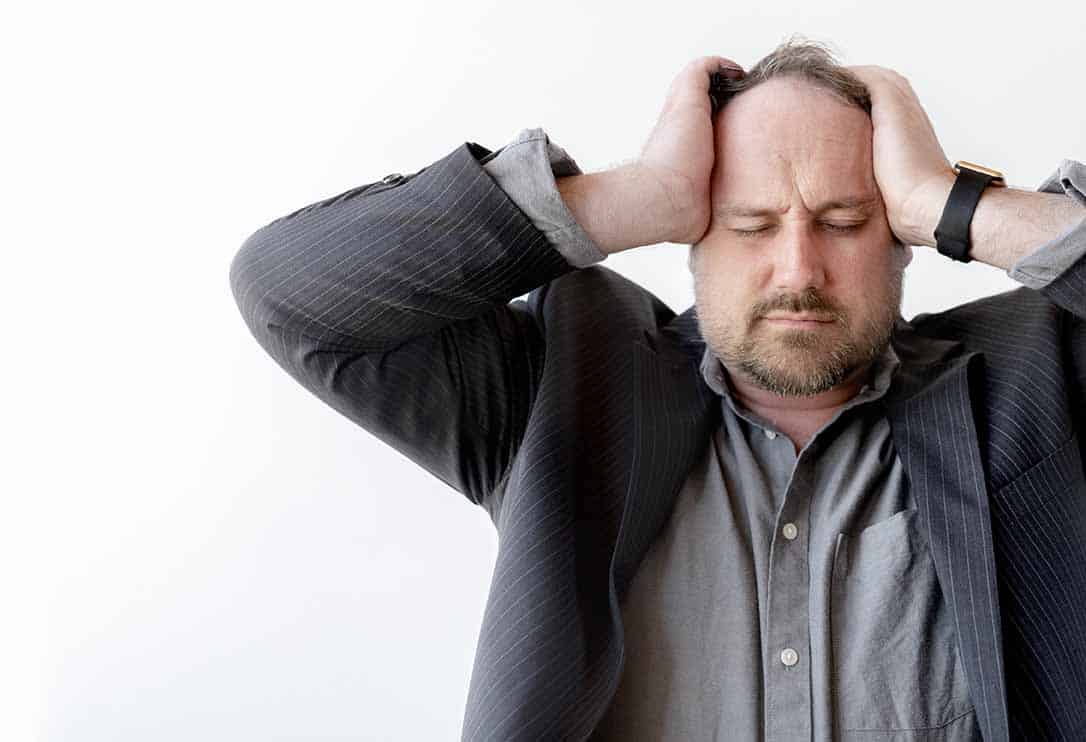Alcohol Addiction
Alcohol is the most abused substance in the United States. Drinking is deeply woven into social life and highly accessible, with 28.9 million Americans aged 12 and up having alcohol use disorder last year.
Alcohol addiction goes far beyond the occasional hangover. It erodes your mental and physical health and well-being, strains relationships, derails careers, and disrupts daily life. But it doesn’t have to be like this.
Recovery is possible, and help is available. Learn more about alcohol addiction and how Blue Hills can guide you on your healing journey.
Overview of Alcohol Addiction
Alcohol addiction, (also called alcohol dependence or alcohol use disorder – AUD), is a common yet complex medical condition. People with AUD are unable to stop or control taking alcohol despite its harmful consequences.
This loss of control leads to consequences that impact your physical and mental health, relationships, and ability to fulfill your roles and obligations.
AUD causes an intense craving to drink and triggers anxiety or irritability when you’re not drinking. And once drinking, you find it difficult to stop.

What Causes Alcohol Addiction?
Alcohol activates the brain’s reward processing system by releasing dopamine, the “feel good” brain chemical.
Prolonged alcohol use also disrupts critical brain circuits controlling mood, pleasure, and behavior. This rewiring causes irritability and anxiety when alcohol is absent and reduces your ability to feel pleasure without alcohol.
With repeated alcohol exposure, the brain requires more alcohol to get the same pleasurable effects, leading to tolerance.
This also causes changes in the brain that make it increasingly reliant on alcohol to function normally. It also helps the body and brain avoid the negative emotions and symptoms, driving cravings and reinforcing continued use.

Risk Factors for Alcohol Addiction
Alcohol misuse, or drinking in ways that could harm yourself or others, significantly increases your risk of developing AUD. It includes binge drinking — about 4 to 5 drinks within two hours — and heavy drinking, which means 4 to 5 drinks on any given day or 8 to 15 drinks per week.
Below are other risk factors that may also contribute to AUD:
- Drinking at an early age: The earlier drinking onset, the greater the risk of AUD, and drinking before age 15 increases your risk of AUD by three times.
- Genetics: If you have a family history of alcohol addiction, you have a 60% chance of inheriting it. Your environment also plays a role, such as growing up with an alcoholic family member.
- Trauma and external stress: People who experienced trauma, particularly in childhood, such as abuse or chaotic home environments or accumulated stress throughout life, are at a heightened risk of alcohol consumption and AUD.
- Co-occurring mental health conditions: Having mental health conditions like post-traumatic stress disorder (PTSD) severe mental health disorders may increase your risk of AUD. AUD can also cause or worsen mental health issues.
Who Is Affected by Alcohol Addiction?
Anyone, at any age and walk of life, may become addicted to alcohol. However, some demographics tend to be more affected than others.
Here’s what addiction looks like in different demographics:
- Adolescents drink less often than adults, but they usually consume more when they do.
- 28.9 million people ages 12 and up had AUD in the past year.
- 757,000 adolescents had AUD in the past year.
- One in six young adults (ages 18 to 20) report AUD in the past year, which is highest compared to other age groups.
- Males are more likely to drink more heavily than females, but this gender gap has been narrowing.
- Adolescents drink less often than adults, but they usually consume more when they do.


Alcohol Addiction Stages
Addiction is a repeating cycle with three stages, each tied to specific brain areas like the basal ganglia, which forms habits and processes rewards, and the extended amygdala, which manages stress responses.
The shift from occasional drinking to addiction involves changes in these brain networks, driving the urge to keep drinking and intensifying the cycle over time.
A person may go through this cycle several times in a day or over the course of weeks or months.
Binge/Intoxication Stage
Negative Affect/Withdrawal Stage
Preoccupation/Anticipation Stage
Signs of Alcohol Addiction
The Diagnostic and Statistical Manual of Mental Disorders (DSM-5) classifies AUD as mild, moderate, or severe based on your symptoms: mild (2-3 symptoms), moderate (4-5), and severe (6 or more).
Here are the signs and symptoms of alcohol use disorder:
- Experiencing alcohol withdrawal symptoms (e.g., nausea, sweating, shaking) when not drinking or drinking to avoid themO
- Drinking more than intended or struggling to limit your alcohol intake
- Repeatedly attempting to cut down or quit drinking without success
- Spending excessive time drinking, obtaining alcohol, or recovering from its effects
- Strong “craving” or urge to drink
- Failure to fulfill major responsibilities at work, school, or home due to alcohol use
- Continuing to drink despite the problems caused or worsened by alcohol use
- Reducing or giving up activities to drink instead
- Using alcohol in risky situations
- Continuing to drink despite how it causes or worsens physical and psychological problems
- Building a tolerance, needing more alcohol to feel the same effects.
- Experiencing alcohol withdrawal symptoms (e.g., nausea, sweating, shaking) when not drinking or drinking to avoid them
Alcohol Addiction Side Effects
Aside from short-term alcohol problems like a hangover, prolonged excessive drinking can also have long-term consequences on your physical and mental health.
Physical Side Effects
Behavioral Side Effects
Psychological Side Effects

What Happens When Alcohol Addiction Is Left Untreated?
Left untreated, alcohol will continue to destroy your life and those around you. It can lead to loss of interest in hobbies, neglected responsibilities, job loss, and broken relationships.
The cycle of addiction won’t stop and will only intensify over time. This will lead to increasing levels of tolerance and withdrawal symptoms, creating a cycle that is difficult to break without help.
This struggle also takes a heavy emotional and financial toll on loved ones. It can lead to serious social problems like domestic violence, child neglect, or criminal behavior, significantly increasing the risk of harm or death.

Alcohol Addiction Treatment in Massachusetts
If you’re struggling with alcohol addiction, don’t wait to get help. Several alcohol treatment options are available for you, depending on your needs and how severe your condition is.
Alcohol Detox Programs
Alcohol Addiction Rehab Programs
Day Treatment/Evening Treatment for Alcohol Addiction
Overcome Alcohol Addiction at Blue Hills Recovery
If you or a loved one is struggling with alcohol addiction, our staff at Blue Hills Recovery are committed to helping you break free from the cycle of addiction.
We provide evidence-based treatment and compassionate support throughout your recovery journey, from assessment to aftercare.
Here at Blue Hills, we recognize that addiction is complex. But we also know that with compassionate care and support, you can overcome your addiction and reclaim your life. Contact Blue Hills Recovery to learn more about our approach to treatment and how we can help you in your journey toward lasting sobriety.
Alcohol Addiction FAQs
How do you overcome alcohol addiction?
Is alcohol addiction a choice?
Can you cure alcohol addiction?
What happens if you quit alcohol abruptly?
Sources
Let’s talk about how we can help.
A Life of Healing Can be Yours.
You deserve to become your best self. With decades of combined experience in the field of addiction medicine, our staff knows what it takes to build a foundation for recovery.